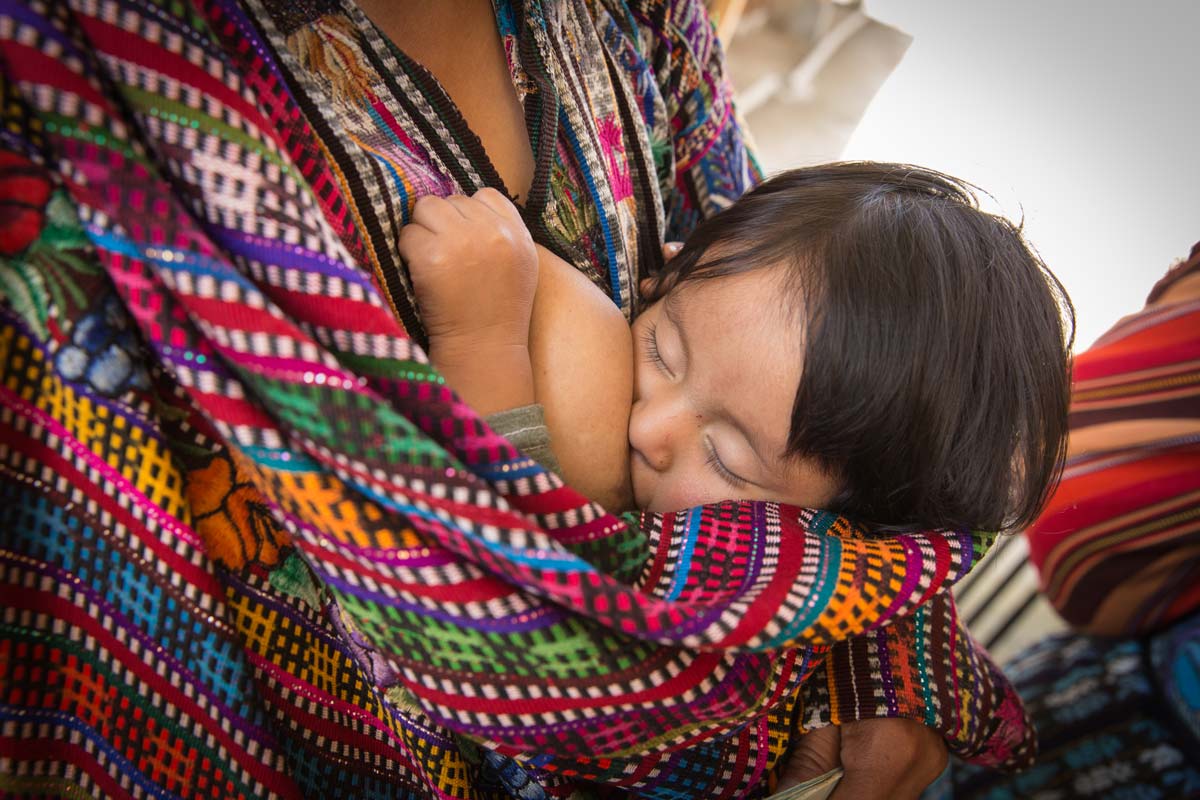Prioritizing Nutrition in Humanitarian Settings
By Quinn Harvey
Associate Director of Implementation Science at Vitamin Angels
©Vitamin Angels – Sophia Billikopf GT17

In an era marked by crises, from armed conflicts to natural disasters to disease outbreaks, the global community is facing a range of complex issues that threaten the health and well-being of vulnerable communities in every region. According to the United Nations, 360 million people globally require humanitarian assistance – a 30% increase since early 2022.
While conflicts and disasters consistently affect communities worldwide, it’s often women and children who bear the disproportionate impact of these crises. The United Nations reports that women and girls constitute 60% of those facing chronic food insecurity. Disruptions to health systems and supply chains exacerbate these challenges, hindering access to essential health services, clean water, and nutritious foods. Despite these realities, the design and implementation of effective programs to support women and girls in humanitarian contexts remains critically under researched and underfunded.
These challenges extend beyond the immediate crises. In response, country governments and NGOs work in close coordination to deliver an integrated package of health and nutrition interventions specifically designed to save lives in the near-term while aiming to mitigate long-term impacts on health, wellness, and child development. Depending on the unique, context-specific needs, these interventions may include: water, sanitation, and hygiene (WASH) services to prevent the outbreak of water-borne diseases and other infections; early childhood development services to provide stability and support while mitigating the negative impacts of the crisis; and safe and appropriate feeding for infants and young children, in line with global guidance on Infant and Young Child Feeding in Emergencies (IYCF-E).
Another critical element to minimize shocks to the system during a crisis involves strengthening health systems to deliver high-quality antenatal care (ANC) and postnatal care (PNC), including an integrated package of nutrition interventions. Malnutrition during pregnancy puts women at risk for life-threatening complications in childbirth and beyond. Infants born to food insecure women are more likely to die prematurely, and those that survive are more likely to experience long-term cognitive and physical consequences. These effects have an intergenerational impact, negatively affecting future generations and continuing the cycle of malnutrition.
Evidence-based interventions, such as multiple micronutrient supplements (MMS), provide a powerful tool to support maternal nutrition and improve birth outcomes in humanitarian contexts. They contain 15 essential vitamins and minerals and significantly reduce the risk of life-threatening birth outcomes – especially in undernourished pregnant women – to promote their health, support their pregnancies, and improve the well-being of their babies.
The World Health Organization and UNICEF recognize the importance of providing MMS in emergency situations, noting that micronutrient deficiencies increase the general risk of infectious illness and death. Micronutrient deficiencies can easily develop during an emergency or be made worse if they are already present, so countries in crisis are taking steps to protect pregnant women:
- In Madagascar, integrated nutrition programs for women and girls have been extended to humanitarian responses. Implementers are working through community-based supply chains and mobile clinics to deliver MMS to pregnant women.
- In Pakistan, MMS is being delivered in areas affected by devastating floods in 2022. The country is in the early stages of delivering MMS through routine ANC programming, allowing aid and implementing partners to also deliver MMS across some of the flood-affected areas through country health systems.
- In Haiti, NGO partnerships with government health institutions have made it possible for MMS supplies to reach women in areas affected by the current political conflicts and the ongoing effects of the 2021 and 2010 earthquakes.
As humanitarian organizations come together to provide lifesaving services in emergency situations, we must also redouble our efforts to preemptively address malnutrition before it takes root. Addressing gaps in nutrition can help communities build resilience and better withstand and recover from crises. Worldwide, a growing number of countries are exploring how to provide MMS as part of high-quality, sustainable antenatal care services for women. A recent report released by The Emergency Nutrition Network (ENN) offers valuable insights into understanding and improving MMS programming in emergencies, including case studies from Somalia and Pakistan.
The foundational role of nutrition cannot be overstated. Advocates are calling on global leaders to continue strengthening national protocols, coordination, and funding for MMS programs, offering women, girls, and children in both humanitarian and development settings a chance at a healthier life. By investing in proven nutrition interventions and strengthening nutrition services, we can disrupt the intergenerational cycle of malnutrition and create opportunities for women and children to achieve optimal health and well-being.
